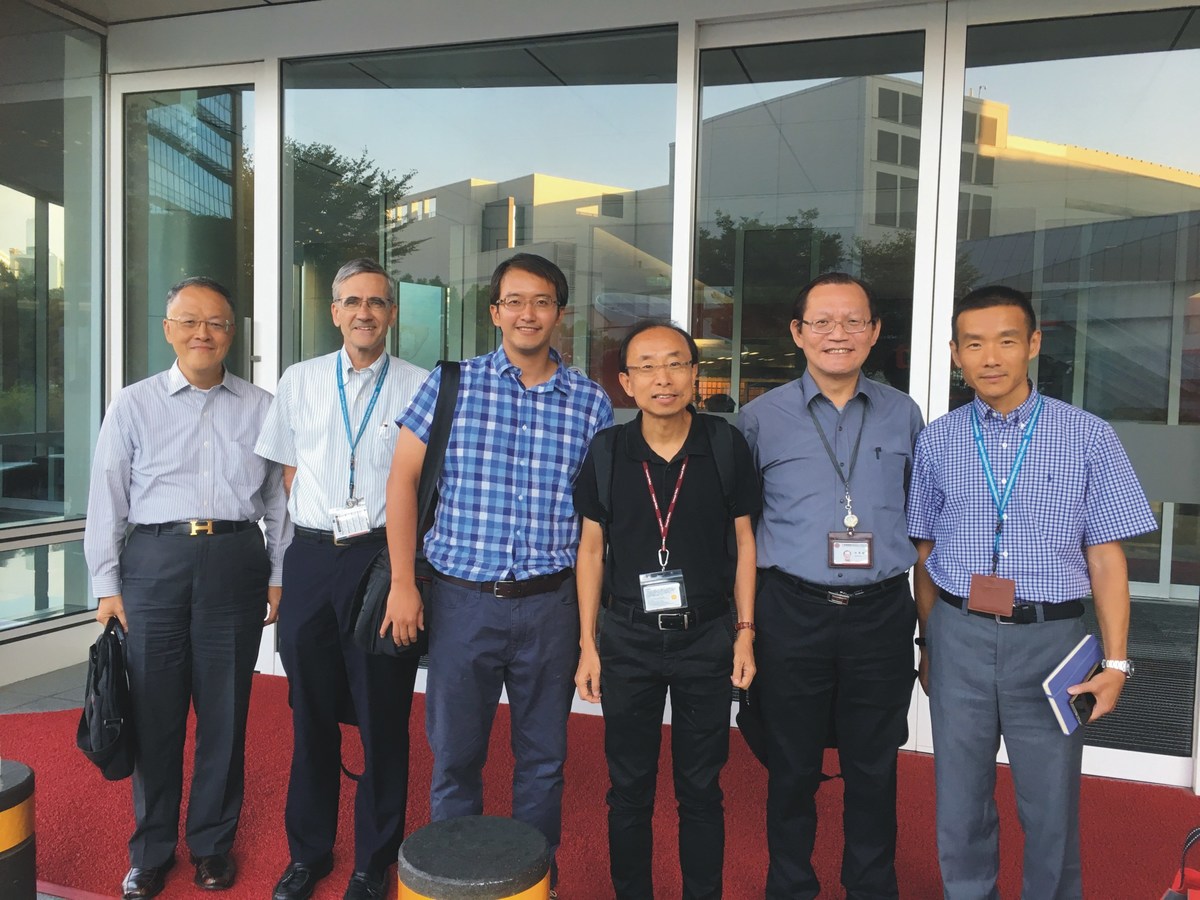Kuei-Lin Chiu publishes paper on combination of topological materials and superconducting quantum circuits in Nano Letters

(Provided by Department of Physics) Assistant Professor Kuei-Lin Chiu of the Department of Physics at National Sun Yat-sen University, in collaboration with a team of scientists and researchers from the Shenzhen Institute for Quantum Science and Engineering, has published the results of their cross-disciplinary research on the combination of topological materials and superconducting quantum circuits: Flux Tunable Superconducting Quantum Circuit Based on Weyl Semimetal MoTe2 in Nano Letters, a top international journal. Only the Microsoft research team has published similar research results in this cross-disciplinary research field.
Professor Chiu pointed out that in recent years, quantum computing (QC) has become a popular research field worldwide, and that at present, major QC hardware systems can be classified into superconducting qubits, quantum dots, trapped ions, photons, topological qubits – all are researched by teams all over the world. This research spans across superconducting and topological systems. Because superconducting qubits employ the Josephson junction as the core component, and topological materials combined with superconductors in Josephson junctions can carry a kind of quasiparticle called Majorana bound state, which has an unusual energy-phase relation and has the potential to be used for fault-tolerant topological quantum computing. Topological qubits have an advantage over other major QC systems in that they are rather less susceptible to environment-induced decoherence. The team used Weyl semimetals as Josephson junctions and probed the topological properties of materials using the measurement of superconducting qubits. Their research framework can be extended to probe the topological properties of different materials and further explore the possibility of utilizing different materials for topological qubits. Professor Chiu pointed out that at present, topological quantum computing is still searching for non-Abelian anyons, and its non-commutative exchange ability has not yet been verified. "In the future, we will strive to find suitable materials and design exchangeable structures.”
Professor Chiu joined the faculty of the Department of Physics at NSYSU in August 2019 and has already issued five publications while at NSYSU, including two journal articles (top 10% and top 25% journals in the world), two review articles, and one invited book chapter. Chiu is the first or the corresponding author of the two journal articles and the invited chapter. Four of the five publications relate to the topic of quantum computing. Since 2017, Professor Chiu has returned to Taiwan many times to exchange quantum computing-related technologies with the academia and industry. In 2017, he was an invited speaker in Advanced Semiconductor and IC Technology Forum, and in 2018, he was invited to give a speech for Taiwan Semiconductor Manufacturing Company (TSMC), where he met TSMC Vice President for Corporate Research H.-S. Philip Wong. After returning to NSYSU in 2019, he was also invited to introduce his research to academic institutions such as National Taiwan University, National Tsing Hua University, National Chiao Tung University, National Cheng Kung University, and Academia Sinica. In November 2020, he was invited by Taiwan Association for Quantum Computer and Information Technology (TAQCIT) to give a speech on the development of quantum computing in different hardware platforms at the 2020 Quantum Computer Forum in Taipei. (Related publications: https://eins0728.github.io/publications.html )
Professor Chiu's lab at NSYSU is still under construction and its members are mainly undergraduate students; he looks forward to welcoming more students passionate about quantum technologies. Professor Chiu pointed out that Thomas Kuo, a graduate of the Department of Physics in the University of Michigan-Ann Arbor, who is staying in Taiwan temporarily due to the pandemic and has been an intern in his lab for nearly 10 months, has recently decided to stay at NSYSU and join his lab for his master's degree program, and later, he is thinking on applying for a PhD program in quantum computing in the USA. “The fact that a student from top 10 Universities for physics in the USA is willing to stay at NSYSU, shows that our research topic is still very attractive, and I am grateful to him for bringing a different learning culture to our lab.” Professor Chiu said that during his stay abroad, he met many talented and intelligent students, much more diligent than the others, and that he hopes that the Taiwanese students will grow to be a more competitive generation that will lead the so-called second quantum revolution, and establish Taiwan’s position in the world in this field just like in the semiconductor industry.
(Edited by Public Affairs Division)
Note:
Publications by Professor Chiu:
1. https://pubs.acs.org/doi/10.1021/acs.nanolett.0c02267
2. https://link.springer.com/article/10.1007/s11664-020-08442-x
3. http://aappsbulletin.org/myboard/read.php?id=236&Page=1&Board=featurearticles&FindIt=&FindText=
4. https://journals.aps.org/prb/abstract/10.1103/PhysRevB.100.125412
Professor Chiu was invited by the Taiwan Association for Quantum Computer and Information Technology (TAQCIT) to give a speech during 2020 Quantum Computer Forum in Taipei:
https://youtu.be/64uGLvwhqzU?t=408 (Talk: 6:48 - 30:00; Panel discussion: 2:15:48)
